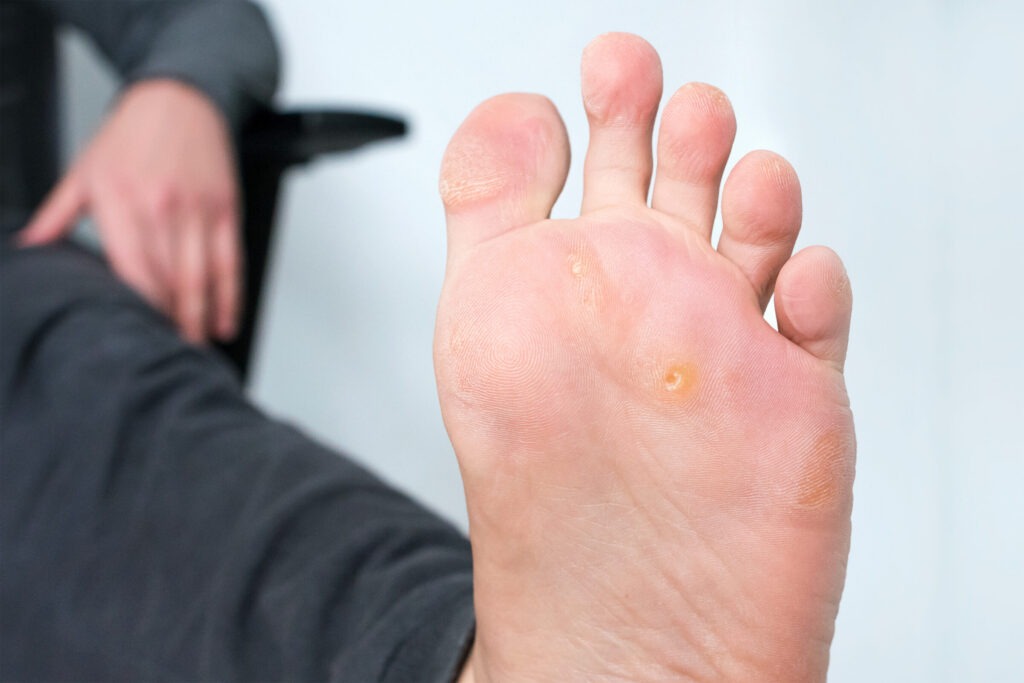Verrucas, also known as plantar warts, are a common foot complaint we see in South Dublin Podiatry, especially among children, athletes, and anyone who regularly goes barefoot in communal areas like swimming pools or gyms. While they’re usually harmless, they can be stubborn, unsightly, and sometimes painful. Here’s what you need to know.
What Is a Verruca?
A verruca is a type of wart that appears on the soles of the feet. It’s caused by the human papillomavirus (HPV), which enters the skin through tiny cuts or abrasions. Unlike warts on other parts of the body, verrucas are flattened by the pressure of walking and often develop a hard outer layer with a small black dot in the centre—this is a clotted blood vessel, not a root (a common myth!).
How Do You Catch Them?
HPV thrives in warm, moist environments, making communal showers, swimming pools, and gym changing rooms ideal breeding grounds. Walking barefoot in these places increases your risk of infection. It’s also worth noting that the virus can survive on surfaces for long periods, so it doesn’t take much to pick it up.
Are They Contagious?
Yes, verrucas are contagious, but not in the way you might expect. They don’t spread through casual contact like shaking hands, but rather through direct contact with infected surfaces or skin. They can also spread from one part of your foot to another, or even to your hands if you pick or scratch them.
What Do They Feel Like?
Many verrucas are painless, but if they’re located on a pressure point (like the ball or heel of your foot), they can feel like you’re walking on a stone. Some people experience tenderness or discomfort, particularly when standing or walking for long periods.
Treatment Options
The good news is that verrucas often go away on their own—though this can take months or even years. If they’re painful, spreading, or just not going away, it’s worth seeking professional treatment. Options include:
-
Topical treatments – Over-the-counter or prescription-strength acids to break down the wart tissue.
-
Swift Microwave Therapy – A modern, non-invasive treatment using microwave energy to target the virus directly.
- Salicylic Acid Therapy- consists of removing the outer dead layers of skin and triggering the immune
system into clearing the virus. Before applying the paste, the thickened skin will need to be removed by
your podiatrist. - Verrutop– Topical solution for children, providing painless treatment of difficult warts that is highly effective in just a few applications.
At South Dublin Podiatry, we assess each case individually to recommend the most appropriate treatment plan.
Prevention Tips
-
Always wear flip-flops in communal showers or pool areas
-
Avoid sharing socks, shoes, or towels
-
Keep your feet clean and dry
-
Don’t pick at verrucas—it increases the risk of spreading
-
Cover the verruca with a plaster if you’re going barefoot
When to See a Podiatrist
If your verruca is painful, persistent, or interfering with daily activities, it’s time to book in with a podiatrist. Early intervention can prevent the lesion from spreading and help you get back on your feet—comfortably and confidently.
If you are concerned about your feet, please call us on 01-9012009 or fill out the form below.

